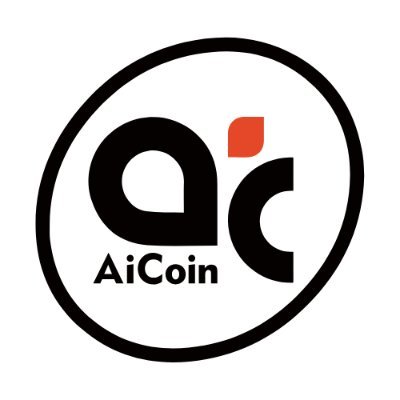Bitget:全球日交易量排名前 4!
BTC 市占率62.45%
Bitget 新幣上架 : Pi Network
BTC/USDT$85496.24 (+2.36%)恐懼與貪婪指數43(恐懼)
山寨季指數:0(比特幣季)
盤前交易幣種PAWS,WCT比特幣現貨 ETF 總淨流量:-$1M(1 天);-$872.6M(7 天)。Bitget 新用戶立享 6,200 USDT 歡迎禮包!立即領取
到 Bitget App 隨時隨地輕鬆交易!立即下載
Bitget:全球日交易量排名前 4!
BTC 市占率62.45%
Bitget 新幣上架 : Pi Network
BTC/USDT$85496.24 (+2.36%)恐懼與貪婪指數43(恐懼)
山寨季指數:0(比特幣季)
盤前交易幣種PAWS,WCT比特幣現貨 ETF 總淨流量:-$1M(1 天);-$872.6M(7 天)。Bitget 新用戶立享 6,200 USDT 歡迎禮包!立即領取
到 Bitget App 隨時隨地輕鬆交易!立即下載
Bitget:全球日交易量排名前 4!
BTC 市占率62.45%
Bitget 新幣上架 : Pi Network
BTC/USDT$85496.24 (+2.36%)恐懼與貪婪指數43(恐懼)
山寨季指數:0(比特幣季)
盤前交易幣種PAWS,WCT比特幣現貨 ETF 總淨流量:-$1M(1 天);-$872.6M(7 天)。Bitget 新用戶立享 6,200 USDT 歡迎禮包!立即領取
到 Bitget App 隨時隨地輕鬆交易!立即下載



ZeroLend 價格ZERO
上架
報價幣種:
TWD
NT$0.002988+0.77%1D
價格
TradingView
市值
ZeroLend 價格走勢圖(ZERO/TWD)
最近更新時間 2025-04-12 22:15:27(UTC+0)
市值:NT$80,813,970.53
完全稀釋市值:NT$80,813,970.53
24 小時交易額:NT$90,276,235.15
24 小時交易額/市值:111.70%
24 小時最高價:NT$0.003038
24 小時最低價:NT$0.002905
歷史最高價:NT$0.04547
歷史最低價:NT$0.002198
流通量:27,050,359,000 ZERO
總發行量:
100,000,000,000ZERO
流通率:27.00%
最大發行量:
--ZERO
以 BTC 計價:0.{8}1081 BTC
以 ETH 計價:0.{7}5595 ETH
以 BTC 市值計價:
NT$2,028.71
以 ETH 市值計價:
NT$238.21
合約:--
您今天對 ZeroLend 感覺如何?
注意:此資訊僅供參考。
ZeroLend 的 AI 分析報告
今日加密市場熱點查看報告
今日 ZeroLend 價格 TWD
今日 ZeroLend 即時價格為 NT$0.002988 TWD,目前市值為 NT$80.81M。過去 24 小時內,ZeroLend 價格漲幅為 0.77%,24 小時交易量為 NT$90.28M。ZERO/TWD(ZeroLend 兌換 TWD)兌換率即時更新。
ZeroLend 價格歷史(TWD)
過去一年,ZeroLend 價格上漲了 -86.61%。在此期間,ZEROLEND 兌 TWD 的最高價格為 NT$0.04547,ZEROLEND 兌 TWD 的最低價格為 NT$0.002198。
時間漲跌幅(%) 最低價
最低價 最高價
最高價 
 最低價
最低價 最高價
最高價 
24h+0.77%NT$0.002905NT$0.003038
7d-5.57%NT$0.002586NT$0.003194
30d+8.40%NT$0.002586NT$0.004851
90d-54.05%NT$0.002198NT$0.01018
1y-86.61%NT$0.002198NT$0.04547
全部時間-86.61%NT$0.002198(2025-02-28, 44 天前 )NT$0.04547(2024-09-27, 198 天前 )
ZeroLend 的最高價格是多少?
ZeroLend 兌換 TWD 的歷史最高價(ATH)為 NT$0.04547,發生於 2024-09-27。相較於 ZeroLend 歷史最高價,目前 ZeroLend 價格回撤了 93.43%。
ZeroLend 的最低價格是多少?
ZeroLend 兌換 TWD 的歷史最低價(ATL)為 NT$0.002198,發生於 2025-02-28。相較於 ZeroLend 歷史最低價,目前 ZeroLend 價格上漲了 35.93%。
ZeroLend 價格預測
什麼時候是購買 ZERO 的好時機? 我現在應該買入還是賣出 ZERO?
在決定買入還是賣出 ZERO 時,您必須先考慮自己的交易策略。長期交易者和短期交易者的交易活動也會有所不同。Bitget ZERO 技術分析 可以提供您交易參考。
根據 ZERO 4 小時技術分析,交易訊號為 買入。
根據 ZERO 1 日技術分析,交易訊號為 賣出。
根據 ZERO 1 週技術分析,交易訊號為 賣出。
ZERO 在 2026 的價格是多少?
根據 ZERO 的歷史價格表現預測模型,預計 ZERO 的價格將在 2026 達到 NT$0.003451。
ZERO 在 2031 的價格是多少?
2031,ZERO 的價格預計將上漲 +27.00%。 到 2031 底,預計 ZERO 的價格將達到 NT$0.004842,累計投資報酬率為 +65.87%。
常見問題
ZeroLend 的目前價格是多少?
ZeroLend 的即時價格為 NT$0(ZERO/TWD),目前市值為 NT$80,813,970.53 TWD。由於加密貨幣市場全天候不間斷交易,ZeroLend 的價格經常波動。您可以在 Bitget 上查看 ZeroLend 的市場價格及其歷史數據。
ZeroLend 的 24 小時交易量是多少?
在最近 24 小時內,ZeroLend 的交易量為 NT$90.28M。
ZeroLend 的歷史最高價是多少?
ZeroLend 的歷史最高價是 NT$0.04547。這個歷史最高價是 ZeroLend 自推出以來的最高價。
我可以在 Bitget 上購買 ZeroLend 嗎?
可以,ZeroLend 目前在 Bitget 的中心化交易平台上可用。如需更詳細的說明,請查看我們很有幫助的 如何購買 指南。
我可以透過投資 ZeroLend 獲得穩定的收入嗎?
當然,Bitget 推出了一個 策略交易平台,其提供智能交易策略,可以自動執行您的交易,幫您賺取收益。
我在哪裡能以最低的費用購買 ZeroLend?
Bitget提供行業領先的交易費用和市場深度,以確保交易者能够從投資中獲利。 您可通過 Bitget 交易所交易。
ZeroLend 行情
ZeroLend 持幣分布集中度
巨鯨
投資者
散戶
ZeroLend 地址持有時長分布
長期持幣者
游資
交易者
coinInfo.name(12)即時價格表

全球 ZeroLend 價格
目前 ZeroLend 用其他貨幣計價是多少?最近更新時間:2025-04-12 22:15:27(UTC+0)
ZERO 兌換 MXN
Mexican Peso
$0ZERO 兌換 GTQGuatemalan Quetzal
Q0ZERO 兌換 CLPChilean Peso
$0.09ZERO 兌換 UGXUgandan Shilling
Sh0.34ZERO 兌換 HNLHonduran Lempira
L0ZERO 兌換 ZARSouth African Rand
R0ZERO 兌換 TNDTunisian Dinar
د.ت0ZERO 兌換 IQDIraqi Dinar
ع.د0.12ZERO 兌換 TWDNew Taiwan Dollar
NT$0ZERO 兌換 RSDSerbian Dinar
дин.0.01ZERO 兌換 DOPDominican Peso
$0.01ZERO 兌換 MYRMalaysian Ringgit
RM0ZERO 兌換 GELGeorgian Lari
₾0ZERO 兌換 UYUUruguayan Peso
$0ZERO 兌換 MADMoroccan Dirham
د.م.0ZERO 兌換 AZNAzerbaijani Manat
₼0ZERO 兌換 OMROmani Rial
ر.ع.0ZERO 兌換 KESKenyan Shilling
Sh0.01ZERO 兌換 SEKSwedish Krona
kr0ZERO 兌換 UAHUkrainian Hryvnia
₴0- 1
- 2
- 3
- 4
- 5
如何購買 ZeroLend(ZERO)

建立您的免費 Bitget 帳戶
使用您的電子郵件地址/手機號碼在 Bitget 註冊,並建立強大的密碼以確保您的帳戶安全

認證您的帳戶
輸入您的個人資訊並上傳有效的身份照片進行身份認證

將 ZeroLend 兌換為 ZERO
在 Bitget 上選擇加密貨幣進行交易。
購買其他幣種
您可以在哪裡購買 ZeroLend(ZERO)?
影片部分 - 快速認證、快速交易

如何在 Bitget 完成身分認證以防範詐騙
1. 登入您的 Bitget 帳戶。
2. 如果您是 Bitget 的新用戶,請觀看我們的教學,以了解如何建立帳戶。
3. 將滑鼠移到您的個人頭像上,點擊「未認證」,然後點擊「認證」。
4. 選擇您簽發的國家或地區和證件類型,然後根據指示進行操作。
5. 根據您的偏好,選擇「手機認證」或「電腦認證」。
6. 填寫您的詳細資訊,提交身分證影本,並拍攝一張自拍照。
7. 提交申請後,身分認證就完成了!
加密貨幣投資(包括透過 Bitget 線上購買 ZeroLend)具有市場風險。Bitget 為您提供購買 ZeroLend 的簡便方式,並且盡最大努力讓用戶充分了解我們在交易所提供的每種加密貨幣。但是,我們不對您購買 ZeroLend 可能產生的結果負責。此頁面和其包含的任何資訊均不代表對任何特定加密貨幣的背書認可,任何價格數據均採集自公開互聯網,不被視為來自Bitget的買賣要約。
ZeroLend 評級
社群的平均評分
4.6
此內容僅供參考。
Bitget 觀點

National_Cryptographic
7小時前
Weekly and Monthly Performance
One of the biggest game changers in trading is consistently tracking your weekly and monthly performance. When you combine that with clear, realistic targets and the discipline to control your greed, you’ll be on the right path quickly.
Clarity, structure, and emotional control are what separate real traders from the gamblers.
So what is a realistic goal?
Think about it: The average fund offers around a 10% annual return. The better-performing ones, which actively trade, might reach 30–50%.
The very best, the elite traders sometimes hit 100% annually, but only after years of experience, refinement, and usually as part of a sophisticated team where each member brings a unique edge.
Now ask yourself this: If some of the brightest minds in finance, with decades of experience and full-time resources, are producing those kinds of returns, how likely is it that the average shitcoiner is going to outperform them on a weekly or monthly basis?
Exactly — the odds are basically zero.
Sure, there are outliers. Some people hit it big. But they’re often just lucky lottery winners, and most can’t replicate their success. There’s nothing to learn from that. No process. No edge. Just noise.
These stories sell dreams — dreams of getting rich quick — and they lure people into throwing their life savings into hot air.
But real traders know better. They know it’s not about the quick win. It’s about sustainable, repeatable performance. With discipline and patience.
So what’s the smarter strategy here?
I’d argue that setting realistic targets is by far the better approach and something every serious trader should be doing.
Personally, I aim for around 10% per month on my trading accounts. That breaks down to about 2.5% per week. At first glance, that might not sound like much — but everything depends on the size you’re trading.
For example, if you're managing a $100K account, that’s $2.5K a week or $10K a month. That’s solid performance and for many, more than enough to live well.
It's not flashy, it’s not “get rich overnight,” but it’s consistent, sustainable, and most importantly — replicable. And that’s what real trading is all about.
Of course, I don’t always hit my targets on every account, but more often than not, I come close.
And when I combine that with some well-timed spot investments, it adds up to a pretty solid income.
Some weeks or months, I give a bit back to the market, that’s part of the game. But when I zoom out and look at the bigger picture, I’m genuinely happy with my overall performance.
The power of having these “small” weekly or monthly targets lies in their achievability.
If you aim for 2% a week, it’s realistic and you can build real momentum through consistency. Compare that to throwing your entire life savings at one position hoping for 1000%… the odds are basically zero.
One is sustainable. The other is a gamble dressed as ambition.
2.5% really isn’t much when you think about it.
If I take a position with 1% risk, that’s just 2.5R realised and with solid TA and no greed, that’s very achievable.
When you operate with realistic targets, your mindset shifts. You find yourself saying things like:
“Ah, I’ll take that 2% and go have a nice dinner,”
instead of,
“If Fartcoin reaches the market cap of Bitcoin, I can finally buy my third helicopter.”
That kind of grounded attitude is what lets you extract from the market week after week, month after month.
Consistency > Fantasy. Every time.
If you can consistently achieve 100% per year, you’re among the top traders in the world. And here’s the kicker: That kind of performance turns a $10K account into $1.28 million in just seven years.
Show me another profession where you can generate that kind of return with a similar time and focus investment + freedom of space. There aren’t many.
That’s the power of consistency, compounding, and real skill over hype.
If you need $2.5K a month to live, you can make that through trading with a $25K account, as long as you manage to pull 10% a month. Of course, having a bigger cushion is ideal, but that’s not the point.
The point is this: If you stop chasing unrealistic targets and spend just 15 minutes thinking through the actual math, your life and trading will start to make sense.
Clarity kills delusion and once you understand the numbers, everything changes.
The big traders I mentioned earlier often operate with massive sums and that comes with its own challenges. It usually requires licenses, special connections, and a whole different skill set, because once you reach a certain size, you start moving the market.
But for us small, un-greedy fish, that’s our biggest strength. We can enter and exit “full-size” in almost any market without leaving a trace. Use that to your advantage.
Set realistic targets. Stay nimble. And drain the market consistently: Week by Week, Month by Month and Year by Year.
UP+9.44%
PEOPLE+2.99%

Cointribune EN
2天前
Shiba Inu (SHIB) Remains Stable, But A Key Catalyst Is Missing
The crypto market is swaying, the nerves are frayed, and tokens are raining down like dead leaves in a macroeconomic autumn. Yet, in this grim setting, Shiba Inu (SHIB) holds on, refusing the addition of a fatal zero, and resists where others have already collapsed. No lyrical flight for now, but there is tension in the air: what if the calm heralds a spectacular comeback?
As Bitcoin wavers between hiccup and paralysis, even for the coming months , SHIB stands firm. Despite a 3.08% drop in 24h, the token proudly maintains its position above $0.00001, narrowly avoiding the humiliation of an additional zero. The support at $0.00001028 has, once again, served as a floor against the downpour.
Short-term indicators give fodder to optimists. If the crypto SHIB breaks the resistance at $0.00001109 and the candle closes at a peak, the movement could take it toward $0.00001150. However, the bulls, after several timid charges, seem short on fuel.
The most likely scenario? A consolidation in the $0.00001050 – $0.00001150 zone.
In the medium term, the issue lies elsewhere: the weekly close must move significantly away from the pivot level of $0.00001078. Only under this condition will analysts dare to speak of a rebound toward $0.000012.
In the midst of the malaise, the SHIB community does not give up. Lucie, an engaged member of the team, blows on the embers with confidence:
SHIB holds firm. When the turnaround comes, it can happen very quickly. Look at its current valuation. Some are sleeping on it, but those who pay attention know what’s coming.
In other words: the ambient torpor is nothing but a temporary sleep. The informed, however, are ready. In a second breath, she readjusts the skeptics in her way:
The echo chambers full of FUD about SHIB are trying to sell you their other crap — meh! SHIB simply follows the market. But let’s be honest — no one really doubts its real value.
A clear message addressed to fear sellers: the fundamentals are there, even if the price is not following yet.
The fate of SHIB, as often, does not depend solely on its community or its technical levels. It relies on a broader mechanism: the awakening of the crypto market as a whole. Recent massive liquidations — $445 million in 24h — show that investors are sailing blind, caught in a sea of macroeconomic uncertainties.
No sustainable recovery for SHIB will materialize without a positive signal from bitcoin. In the meantime, SHIB remains suspended at its support, ready to jump if the planets align… or to bend if the market plunges further.
The memecoin Shiba Inu takes hits, steps back, but does not capitulate and promises a spectacular comeback . Its line at $0.00001 is more than just a number: it is a declaration of resistance. While bearish echoes rattle on the networks, the community holds its ground. The turnaround? It might come… but not without bitcoin showing the way.
UP+9.44%
MOVE+2.36%

Aicoin-EN-Bitcoincom
3天前
Coinbase Co-Founder Fred Ehrsam Unveils Brain Interface Device
Fred Ehrsam and Brian Armstrong started Coinbase in a two-bedroom apartment thirteen years ago. Both men are now billionaires, but Ehrsam has quietly parlayed his fortunes into neuroscience innovation, launching a brain interface startup in 2024 called Nudge. On Monday, the firm unveiled its first product, the Nudge Zero, a non-invasive ultrasound neuromodulation device.
That’s a mouthful, but “non-invasive ultrasound neuromodulation” simply means modifying brain activity by using an ultrasound machine. Such a device emits ultrasound waves that impact cell membranes in the brain without causing permanent changes or damage.
(The “Nudge Zero” is the first device from Fred Ehrsam’s neuroscience startup / Nudge on X)
Reasons for using ultrasound neuromodulation devices vary, but they typically fall into two overlapping categories, medical and therapeutic. Medical issues would include neurological conditions such as epilepsy and pain management, while therapeutic conditions would encompass less acute scenarios such as depression.
The Nudge Zero, according to Ehrsam, will first tackle acute medical conditions, and its predecessor will eventually be introduced as a therapeutic solution for individuals seeking various forms of mental well-being.
“We will first use the device to attempt to treat acute medical conditions in the coming months,” Ehrsam explained. “With the eventual goal of creating a headphone-like miniaturized version … to enhance mood, cognition, and daily life for healthy people.”
(Computer renderings of what Nudge’s therapeutic wearables may look like once launched / Nudge on X)
Prior to launching Nudge in 2024, Ehrsam and Sequioa veteran Matt Huang co-founded Paradigm in 2018, a crypto-focused venture capital firm that manages three funds, the most recent of which closed at $850 million last June.
The 36-year-old Ehrsam, now worth $2.1 billion, according to Forbes, stepped away from his managing partner role at the firm in 2023 but has remained at Paradigm as a general partner. It appears neuroscience and not crypto is now his primary focus.
“We believe improving the human experience is the most important thing to work on. This should be the goal of technology,” Ehrsam said. “And building technologies to interface with the brain is the most direct way of doing so.”
免责声明:本文章仅代表作者个人观点,不代表本平台的立场和观点。本文章仅供信息分享,不构成对任何人的任何投资建议。用户与作者之间的任何争议,与本平台无关。如网页中刊载的文章或图片涉及侵权,请提供相关的权利证明和身份证明发送邮件到support@aicoin.com,本平台相关工作人员将会进行核查。
PEOPLE+2.99%
WAVES+1.62%

Cointribune EN
4天前
50% Tax: Donald Trump Intensifies Pressure On China After Beijing's Response
Donald Trump has escalated trade tensions with China on Monday, April 7, by threatening to impose “additional” tariffs of 50% on Chinese products. This new escalation could take effect as early as April 9, if Beijing does not reverse its decision to retaliate against the American customs offensive. Indeed, China had announced an increase in its own tariffs to 34% on American imports, starting from April 10.
The situation quickly worsened after the imposition, on Saturday, of a 10% customs tariff on all American imports. This rate is set to increase to 20% for the European Union and 34% for China by Wednesday. Labeled as a “strategic adjustment” by Trump, this measure has been seen as an attack by several economic partners, notably China, which retaliated by also applying taxes of 34% on American products.
In response to Beijing’s retaliation, Donald Trump announced a 50% increase in tariffs on Chinese products. On his Truth Social platform, he labeled China as the “greatest profiteer” and criticized its reaction to a policy he deems just. Trump also specified that he would not accept any meeting requests from Beijing while starting negotiations with other nations considered more cooperative.
During the press conference on April 7, 2025, Ursula von der Leyen stated that the European Union was ready to negotiate a “zero-for-zero” tariff agreement with the United States. However, Donald Trump rejected any negotiation with Europe, demanding large annual payments before considering any tariff reductions.
The EU labeled this demand as extortion, emphasizing that relations between Europe and the United States are now fractured. In reaction to these statements, European stock markets turned positive again, although the situation remains tense, and NATO could be the next target of tensions.
The trade war between the United States, China, and the European Union continues to intensify global tensions. Donald Trump’s threats and the responses from Beijing and the EU signal a period of difficult negotiations. Markets remain volatile and are still struggling to recover from the $3.25 trillion wiped out in 24 hours .
S+10.09%
TRUMP+8.18%

Crypto-Ticker
2025/04/07 10:45
Will Litecoin Crash to $0? Tariff War Triggers Brutal Selloff
Litecoin (LTC) , once called the “silver to Bitcoin’s gold,” is now facing a major existential crisis. As global markets nosedive due to rising tensions in the ongoing tariff wars, cryptocurrencies have not been spared. Litecoin price , in particular, has seen its price tumble violently, plunging from over $80 to as low as $63 in just a few days. With panic gripping traders and charts turning red, the question arises—is Litecoin headed for zero, or is this the final flush before a powerful reversal?
Let’s break down the technicals from both daily and hourly perspectives and examine what the indicators are screaming right now.
On the daily timeframe, Litecoin is in full freefall mode . The Heikin Ashi candles have turned solid red with long bodies and virtually no upper wicks, a textbook sign of strong bearish momentum. LTC has decisively broken below its key moving averages—20 SMA ($87), 50 SMA ($101), 100 SMA ($107), and 200 SMA ($96.5)—which were once stacked in a bearish order and now seem completely irrelevant as price plummets.
This 10%+ drop in a single day is not just volatility; it's fear-driven liquidation. The drop beneath the 200-day SMA has erased months of slow accumulation and shifted the market structure into a full breakdown. Support levels around $70 and even $65 failed to hold, with LTC hitting $63 before a small bounce.
More worryingly, the Accumulation/Distribution Line (ADL) has sharply dropped off. This means there's no whale accumulation happening. Institutions and large wallets are exiting—not buying the dip. This removes one of the key arguments bulls had left.
Looking at the hourly chart, there is a momentary pause in selling pressure—but not much else. Litecoin price has formed a few small-bodied Heikin Ashi candles around the $65 mark, hinting at temporary exhaustion from sellers. However, the overall trend is still firmly downward.
The 20, 50, 100, and 200 SMAs on the hourly chart are all curving downward and stacked in bearish order, with the 20 SMA currently at $70.42 and the 200 SMA far above at $82.40. Price is deeply disconnected from these levels, showing how stretched the current move is—but also how strong the downward momentum has become.
ADL on the hourly confirms this bearish bias, trending lower throughout the drop. While price has slowed, there’s no sign of fresh buying pressure. It's a classic "dead cat bounce" setup unless proven otherwise.
Litecoin’s nearest support is now psychological and untested , with $60 acting as the next round level below. A break under $63 could bring a freefall toward $55–$50, and if macro panic persists, even $40–$35 is not out of the question.
On the upside, price would need to reclaim $72–$75 just to breathe. Any bounce below this level is likely to be sold into. A proper recovery would only begin above $80, and only if paired with rising ADL and strong volume.
The charts are brutal, and the fundamentals are worse. Litecoin price has shown zero buyer support in the face of the current market panic triggered by global tariff wars. Unless a bullish macro shift or crypto-wide rebound kicks in soon, LTC could see lower prices not witnessed in years.
So, will Litecoin crash to $0? Probably not. But if sentiment doesn’t shift quickly, $40 might come before $100 ever does again.
Litecoin (LTC) , once called the “silver to Bitcoin’s gold,” is now facing a major existential crisis. As global markets nosedive due to rising tensions in the ongoing tariff wars, cryptocurrencies have not been spared. Litecoin price , in particular, has seen its price tumble violently, plunging from over $80 to as low as $63 in just a few days. With panic gripping traders and charts turning red, the question arises—is Litecoin headed for zero, or is this the final flush before a powerful reversal?
Let’s break down the technicals from both daily and hourly perspectives and examine what the indicators are screaming right now.
On the daily timeframe, Litecoin is in full freefall mode . The Heikin Ashi candles have turned solid red with long bodies and virtually no upper wicks, a textbook sign of strong bearish momentum. LTC has decisively broken below its key moving averages—20 SMA ($87), 50 SMA ($101), 100 SMA ($107), and 200 SMA ($96.5)—which were once stacked in a bearish order and now seem completely irrelevant as price plummets.
This 10%+ drop in a single day is not just volatility; it's fear-driven liquidation. The drop beneath the 200-day SMA has erased months of slow accumulation and shifted the market structure into a full breakdown. Support levels around $70 and even $65 failed to hold, with LTC hitting $63 before a small bounce.
More worryingly, the Accumulation/Distribution Line (ADL) has sharply dropped off. This means there's no whale accumulation happening. Institutions and large wallets are exiting—not buying the dip. This removes one of the key arguments bulls had left.
Looking at the hourly chart, there is a momentary pause in selling pressure—but not much else. Litecoin price has formed a few small-bodied Heikin Ashi candles around the $65 mark, hinting at temporary exhaustion from sellers. However, the overall trend is still firmly downward.
The 20, 50, 100, and 200 SMAs on the hourly chart are all curving downward and stacked in bearish order, with the 20 SMA currently at $70.42 and the 200 SMA far above at $82.40. Price is deeply disconnected from these levels, showing how stretched the current move is—but also how strong the downward momentum has become.
ADL on the hourly confirms this bearish bias, trending lower throughout the drop. While price has slowed, there’s no sign of fresh buying pressure. It's a classic "dead cat bounce" setup unless proven otherwise.
Litecoin’s nearest support is now psychological and untested , with $60 acting as the next round level below. A break under $63 could bring a freefall toward $55–$50, and if macro panic persists, even $40–$35 is not out of the question.
On the upside, price would need to reclaim $72–$75 just to breathe. Any bounce below this level is likely to be sold into. A proper recovery would only begin above $80, and only if paired with rising ADL and strong volume.
The charts are brutal, and the fundamentals are worse. Litecoin price has shown zero buyer support in the face of the current market panic triggered by global tariff wars. Unless a bullish macro shift or crypto-wide rebound kicks in soon, LTC could see lower prices not witnessed in years.
So, will Litecoin crash to $0? Probably not. But if sentiment doesn’t shift quickly, $40 might come before $100 ever does again.
ORDER+2.99%
LTC+3.30%
相關資產
最近新增
最近新增的加密貨幣
相近市值
在所有 Bitget 資產中,這8種資產的市值最接近 ZeroLend。
關於 ZeroLend 的更多資訊
ICO 價格
NT$0.009710 ICO 詳情
交易
理財
























.png)








